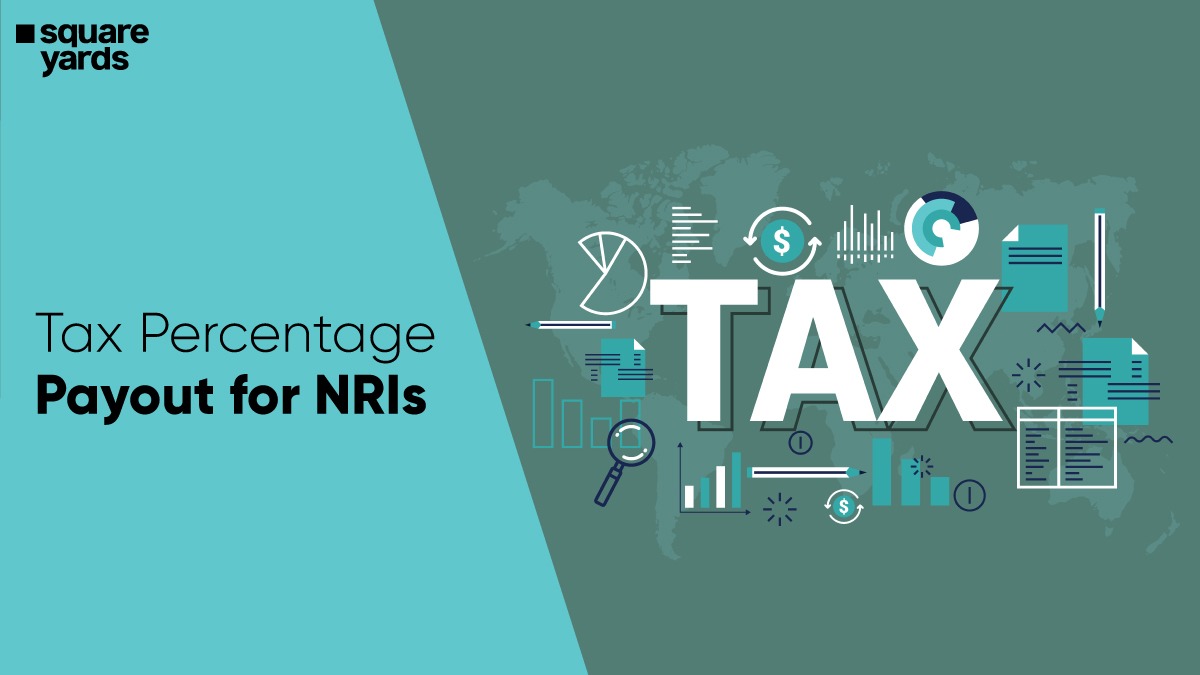If you are an NRI (non-resident Indian) considering purchasing real-estate in India, there has never been a better time to do so. With a recent payout correction in India’s real estate sector and favourable currency rates, buying real-estate in India has become even more appealing.
NRIs have the freedom to purchase both residential and commercial land in India without any restrictions or limitations. NRIs maintain strong connections with India, often having family, financial, or property-related ties to the country. The RBI has granted general permission for property acquisition to all NRIs.
Tax Payout Percentages Mandated by the Reserve Bank of India (RBI)
When an NRI purchases an immobile property in India, they are obligated to deduct Tax Deducted at the Source (TDS). It is calculated based on the residential status of the seller, payout and the nature of the capital gains obtained.
- In the scenario where an NRI acquires an immobile property in India from a resident, a TDS deduction of 1% is mandatory if the sale consideration cost exceeds Rs 50 lakh.
- Conversely, in case, an NRI buys a property from a non-resident and long-term capital gains (LTCG) are applicable, the TDS deduction should be set at 20%.
- NRIs can take home loans up to 80% of the overall value of the property.
Terms and Conditions
There are a few properties that NRI investors are not allowed to purchase:
| Types of Properties | Condition |
| Farmhouses | NRIs are not permitted to purchase these properties. However, if you intend to invest in such properties, prior approval from the RBI would be necessary. |
| Agricultural Land | |
| Plantation Land |
As long as you are not investing in these specific property types, there are no additional procedures to follow.
What is Taxable Capital Gain?
For long-term capital assets, the taxable capital gain is calculated as the full value of the sale consideration minus
- Expenses incurred exclusively and directly related to the transfer
- Indexed cost of acquisition (adjusted based on the cost of inflation index or CII)
- Indexed cost of improvement. The seller may be eligible for an exemption from income tax (I-T) on long-term capital gains (LTCG) under specific provisions of the Indian Income Tax law, provided that the conditions attached to the exemption are met.
How Else can NRIs save on Taxes and Long-Term Capital Gains?
- NRIs can avail themselves of a standard deduction of 30%. They can deduct property taxes, and utilise interest deductions.
- If an NRI’s annual income (in India) stems from investments in Indian assets where TDS has already been deducted, filing an income tax (IT) return is not mandatory. Exemptions can be claimed under Sections 54, 54F, and 54EC for long-term capital gains. This is the opposite of short-term capital gains.
- Deductions are permitted for principal repayment and can be claimed for stamp duty and registration charges paid during the property purchase under Section 80C. They can also get an exemption if capital gains from the sale of the first property are reinvested into specific bonds.
Comprehending TDS Based Deductions In Payout
- When a property is sold within two years or less from the date of purchase, short-term capital gains occur. If short-term capital gains are applicable a TDS deduction of 30% should be made
- If it is sold two years after its acquisition, long-term capital gains are realised. Furthermore, it is important to deposit the deducted tax within 30 days of the deduction. Failure to deduct or delay the deduction of tax will result in a penalty for late TDS deduction at a rate of 1% per month.
- To reduce TDS on the sale of a property by an NRI, they are required to submit an application in Form 13 to the income tax department, seeking a certificate for a nil or lower deduction of TDS. This certificate helps NRIs reduce their TDS liability, making it a popular choice among them.
- However, the process of submitting the form can be complex, leading many NRIs to seek the assistance of a chartered accountant to handle the application.
Other Tax Payout Benefits that NRIs Can Avail
Deductions are allowed in cases like donations made for charitable causes, interest earned on government-issued bonds, and savings certificates. These are also allowed in the following cases:
| Ways | Conditions |
| Insurance policy premiums, provided the policy is in the NRI’s name (or their family’s name). | The premium should amount to less than 10% of the sum assured. |
| Interest paid on tuition fees and educational loans. | It must be for full-time education courses in any school, college, or university in India. |
| Investment in Equity Linked Savings Scheme (ELSS). | These should be from mutual funds, up to Rs 1.5 lakh. |
| Premiums paid for health insurance. | It is either Rs 50,000 for senior citizens or Rs 25,000 for self, spouse, and dependent children. |
FAQ
Q1.) How can we send the funds?
Funds can be received in India through regular banking channels, either via inward remittance from any location outside India or by debiting the NRE/FCNR(B)/NRO account.
Q2.) What are the things to keep in mind while making the payment?
Payments of this nature cannot be made using traveller’s cheques, foreign currency notes, or any other methods unless those specifically mentioned by the Reserve Bank of India (RBI) are used cheques.
Q3.) Do the NRIs have to file any documents after getting general permission?





